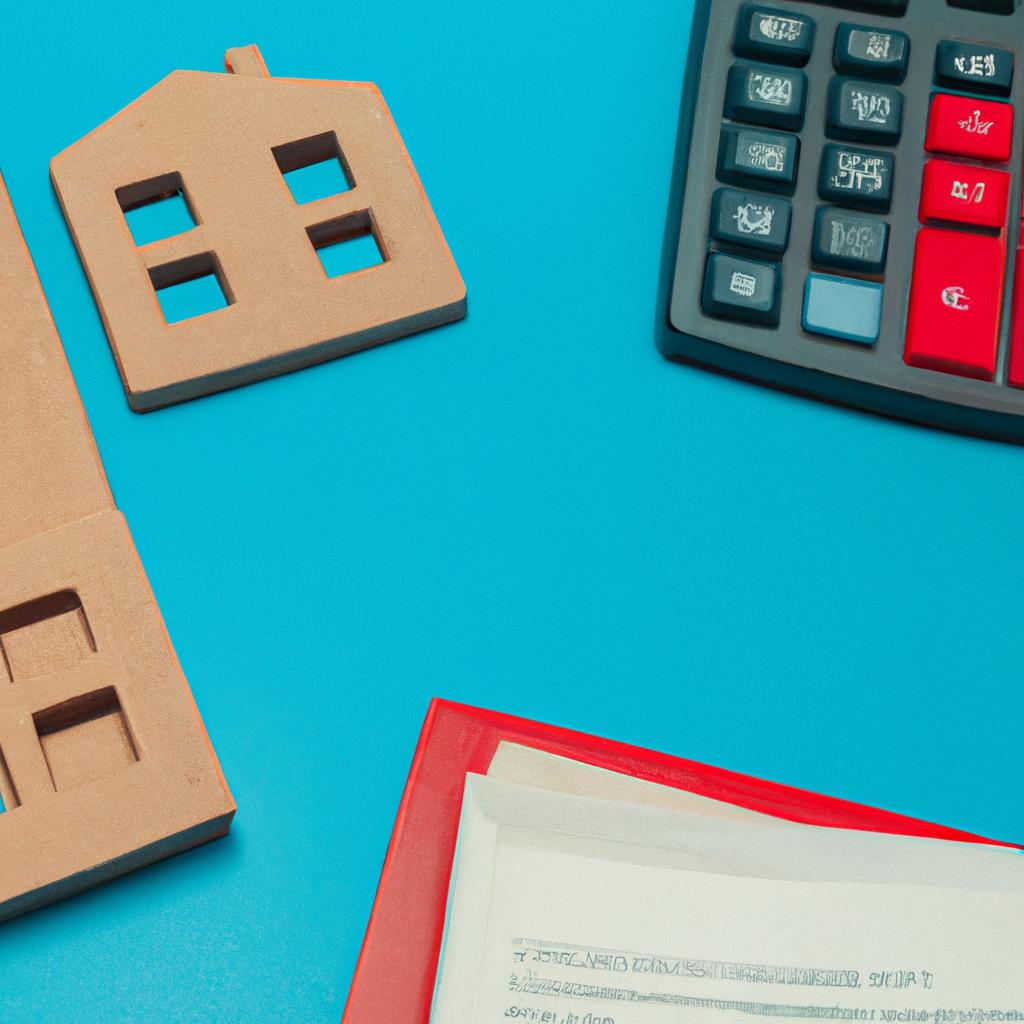Welcome to Morgan Legal Group, a trusted name in the world of real estate law. In the intricate realm of property transactions, the significance of deeds cannot be overstated. These legal documents serve as the cornerstone of real estate ownership, delineating the rights and obligations of all parties involved. Today, we delve into the complexities of deeds real estate, exploring their pivotal role in ensuring a seamless transfer of property rights. Join us as we navigate this intricate terrain with precision and expertise.
Understanding the Role of Deeds in Real Estate Transactions
When it comes to real estate transactions, deeds play a crucial role in transferring ownership of property from one party to another. A deed is a legal document that identifies the parties involved in the transaction, the property being transferred, and the terms of the transfer. There are several types of deeds commonly used in real estate transactions, each serving a different purpose and providing different levels of protection to the parties involved.
One of the most common types of deeds is the warranty deed, which guarantees that the seller has clear title to the property and has the right to transfer ownership. On the other hand, a quitclaim deed transfers whatever interest the grantor has in the property, without making any guarantees about the title. Understanding the differences between these and other types of deeds is essential to ensuring a smooth and legally valid real estate transaction.

Types of Deeds and Their Implications in Property Ownership
When it comes to property ownership, understanding the different types of deeds is crucial. Each type of deed carries its own implications and can have a significant impact on the ownership rights of the parties involved. The two most common types of deeds are warranty deeds and quitclaim deeds.
A warranty deed is a type of deed that guarantees the grantor has legal title to the property and has the right to sell it. By accepting a warranty deed, the grantee is protected against any future claims to the property. On the other hand, a quitclaim deed transfers whatever interest the grantor may have in the property, without any guarantees about the title. This type of deed is often used in situations where the grantor’s interest in the property is uncertain or where there is a lack of clear title.

Ensuring Proper Documentation and Execution of Deeds in Real Estate
Proper documentation and execution of deeds in real estate transactions are crucial to ensure the legality and validity of property ownership. At Morgan Legal Group, our experienced team of attorneys specializes in handling the intricate process of drafting, reviewing, and executing deeds for our clients. We understand the importance of detail-oriented work in real estate transactions, and we strive to provide our clients with comprehensive services to protect their interests.
When it comes to deeds in real estate, our team at Morgan Legal Group pays close attention to every detail, from identifying the correct property description to verifying the validity of the parties involved in the transaction. We are dedicated to ensuring that all legal requirements are met and that our clients’ interests are fully protected. With our expertise in real estate law and our commitment to providing excellent service, you can trust us to handle your deed documentation and execution with precision and care.

Expert Advice on Drafting and Reviewing Deeds for Real Estate Transactions
When it comes to real estate transactions, the drafting and reviewing of deeds are crucial steps that require careful attention to detail. At Morgan Legal Group, we provide expert advice on navigating the complexities of deeds in real estate deals. Our team of experienced attorneys understands the nuances of drafting and reviewing deeds, ensuring that your interests are protected throughout the transaction process.
Whether you are buying, selling, or transferring real estate, having a properly drafted and reviewed deed is essential for a smooth and successful transaction. Our attorneys specialize in creating custom deed documents that meet all legal requirements and address any specific concerns or considerations that may arise. Trust Morgan Legal Group for all your deed drafting and reviewing needs, and rest assured that your real estate transaction is in good hands.
Q&A
Q: What are deeds in real estate and why are they important?
A: Deeds are legal documents that transfer ownership of a property from one party to another. They are important because they provide proof of ownership and protect the rights of both the buyer and the seller.
Q: What are the different types of deeds in real estate?
A: There are several types of deeds, including warranty deeds, quitclaim deeds, special warranty deeds, and trustee’s deeds. Each type of deed has its own specific purpose and implications for the buyer and seller.
Q: How do deeds affect the transfer of property in real estate transactions?
A: Deeds are crucial in real estate transactions because they legally transfer ownership of a property from the seller to the buyer. Without a valid deed, the transfer of property cannot be completed.
Q: What should buyers and sellers know about deeds before entering into a real estate transaction?
A: Buyers and sellers should be aware of the type of deed being used in the transaction, as well as any restrictions or conditions that may be included in the deed. It is important to review the deed carefully to ensure that all terms and conditions are understood before finalizing the transaction.
Key Takeaways
In conclusion, deeds real estate plays a crucial role in the transfer of property ownership. By recording these legal documents, individuals can ensure that their real estate transactions are official and legally binding. Understanding the importance of deeds real estate can help individuals navigate the complexities of buying and selling property with confidence. So whether you are a first-time homebuyer or a seasoned investor, having a solid grasp of deeds real estate is key to successful property transactions. Stay informed and empowered in your real estate journey!
 Title: Understanding Deeds in Real Estate: A Comprehensive Guide
Title: Understanding Deeds in Real Estate: A Comprehensive Guide
When it comes to buying or selling a property, one of the most important documents involved is the deed. A deed is a legal document that transfers the ownership of a property from one party to another. In simple terms, it is a proof of ownership and a crucial piece of paperwork in the real estate world.
In this comprehensive guide, we will dive deeper into what deeds in real estate are, their types, and how they play a significant role in the buying and selling process.
Types of Deeds:
1. Warranty Deed: Also known as a general warranty deed, this type of deed offers the highest level of protection for the buyer. It guarantees that the seller has the legal right to sell the property and there are no undisclosed liens or claims against the property. In the event of any issues, the buyer can hold the seller responsible.
2. Special Warranty Deed: Unlike a warranty deed, a special warranty deed protects the buyer only from any issues that occurred during the seller’s ownership of the property. It does not cover any previous claims or liens on the property.
3. Quitclaim Deed: This type of deed offers the least protection for the buyer. It simply transfers the ownership rights from the seller to the buyer without any guarantees or warranties. It is often used in situations like transferring the property to a family member or when adding a spouse to the property deed.
4. Bargain and Sale Deed: This type of deed is commonly used in a foreclosure or tax sale. It transfers the ownership of the property to the buyer but does not offer any warranties or guarantees.
5. Special Purpose Deed: This type of deed is used for specific purposes like mineral rights or easements on the property. It transfers only the specified rights and does not involve the transfer of full ownership.
How are Deeds Used in Real Estate?
The transfer of ownership through a deed is a crucial step in the real estate process. When buying a property, the seller will provide the buyer with the deed, which includes the legal description of the property and the names of the parties involved in the transaction. The deed is then recorded at the county clerk’s office to make it public record.
Here are some ways in which deeds are used in real estate:
1. Proof of Ownership: The primary function of a deed is to serve as proof of ownership of a property. It establishes the legal rights and responsibilities of the property owner.
2. Title Search: Before a property can be sold, a title search is conducted to ensure that the seller has the legal right to sell the property. The deed is a crucial document that helps verify the ownership and any potential issues with the property.
3. Transfer of Property: A deed is the legal document that officially transfers the ownership of a property from one party to another.
4. Mortgage Transactions: In the case of a mortgage transaction, the lender will hold the deed as security until the loan is paid off. Once the loan is satisfied, the deed is released to the buyer.
5. Estate Planning: Deeds are also used in estate planning to transfer ownership of a property to a beneficiary in the event of the owner’s death.
Benefits of Understanding Deeds in Real Estate:
1. Protects Your Interests: By understanding the different types of deeds, you can safeguard your interests and avoid any potential issues during the buying or selling process. With a warranty deed, you can be assured that the property is free of any liens or claims, and in case of any issues, you can hold the seller accountable.
2. Helps with Title Issues: A deed is essential in resolving any title issues that may arise. By having a clear understanding of the deed, you can easily navigate through any issues and ensure a smooth transfer of ownership.
3. Ensures a Smooth Closing Process: With all the necessary documents, including the deed, in place, the closing process can be completed on time. Furthermore, understanding the deed can also help avoid any delays or complications during the closing process.
Practical Tips to Keep in Mind:
1. Hire a Real Estate Attorney: A real estate attorney can help you understand the complexities of deeds and ensure that the transfer of ownership is done correctly.
2. Review the Deed Carefully: Before signing any document, it is essential to review it carefully to avoid any future issues. If you have any questions or concerns, do not hesitate to seek professional help.
First-hand Experience:
“I recently purchased a property and was not aware of the different types of deeds. My real estate attorney helped me understand the warranty deed and its benefits, which gave me peace of mind during the buying process. I highly recommend seeking professional help to understand deeds in real estate.” – Sarah, Homebuyer.
In Conclusion:
Deeds in real estate play a pivotal role in the buying and selling process. It is essential to understand the different types of deeds and their uses to protect your interests and ensure a smooth transfer of ownership. We hope this comprehensive guide has helped you understand deeds better and emphasized their importance in the real estate world. Remember to seek professional help and review all documents carefully to avoid any future issues. Happy buying or selling!






